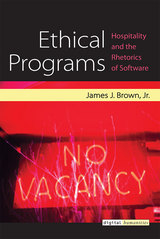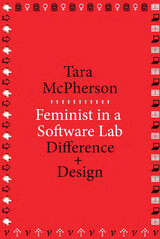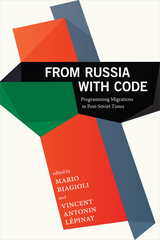

For over a dozen years, the Vectors Lab has experimented with digital scholarship through its online publication, Vectors, and through Scalar, a multimedia authoring platform. The history of this software lab intersects a much longer tale about computation in the humanities, as well as tensions about the role of theory in related projects.
Tara McPherson considers debates around the role of cultural theory within the digital humanities and addresses Gary Hall’s claim that the goals of critical theory and of quantitative or computational analysis may be irreconcilable (or at the very least require “far more time and care”). She then asks what it might mean to design—from conception—digital tools and applications that emerge from contextual concerns of cultural theory and, in particular, from a feminist concern for difference. This path leads back to the Vectors Lab and its ongoing efforts at the intersection of theory and praxis.

Contributors. Irina Antoschyuk, Mario Biagioli, Ksenia Ermoshina, Marina Fedorova, Andrey Indukaev, Alina Kontareva, Diana Kurkovsky, Vincent Lépinay, Alexandra Masalskaya, Daria Savchenko, Liubava Shatokhina, Alexandra Simonova, Ksenia Tatarchenko, Zinaida Vasilyeva, Dimitrii Zhikharevich



READERS
Browse our collection.
PUBLISHERS
See BiblioVault's publisher services.
STUDENT SERVICES
Files for college accessibility offices.
UChicago Accessibility Resources
home | accessibility | search | about | contact us
BiblioVault ® 2001 - 2024
The University of Chicago Press









